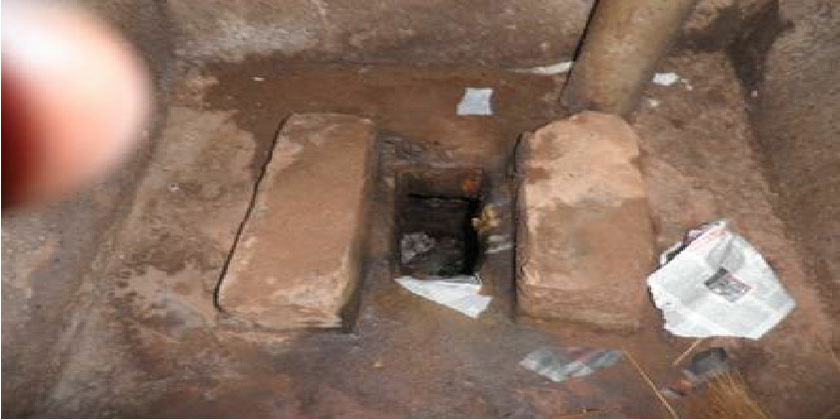Department Environmental Social Sciences
Increasing shared toilet users’ cleaning behavior: the case of urban slums in Kampala, Uganda

Project description
Access to shared toilets is the most common on-site mode of sanitation in urban informal settlements. However, their maintenance depends on users’ appropriate usage and cleaning behavior. A user-driven sanitation (UDS) project in Kampala’s urban slums aimed to increase shared toilet users’ cleaning behavior. Group discussions between users of a shared toilet were applied in combination with public commitment as a behavior change strategy. The strategy increased cleaning behavior by up to 30%.
Context
In Uganda, around 50 % of the urban population relies on shared sanitation, and this percentage is even higher in Kampala’s slums. However, the management of shared toilets (defined as facilities jointly used by different families, mostly known to each other or sharing a compound house) is poor, and most of these toilets are in an unhygienic condition.
Objectives
The overall goal of this research project was to promote the cleaning of shared toilets among their users to ensure good hygiene. Specific objectives included:
- assessing the cleanliness of shared toilets and the behavioral and social dilemma factors that influence users’ cleaning behavior, and
- designing, implementing, and evaluating the effectiveness of behavior change strategies in increasing the cleaning behavior of shared toilet users.
Activities
Step 1 & 2: Identify, measure and determine behavioral factors of shared toilet cleaning
- A baseline survey on shared toilets’ cleanliness and the psychological and social dilemma factors influencing collective cleaning behavior was conducted between December 2012 and January 2013 in three slums.
- The survey revealed that attitudes, norms, ability, and self-regulating factors had to be targeted.
Step 3: Select behavior change techniques (BCTs) and design behavior change strategies to increase shared toilet cleaning
- Two BCTs were selected, the prompt to talk to others, delivered through group discussions, and written public commitment.
- Interventions targeted respondents with dirty toilets, that is, non-frequent cleaners.
Step 4: Implement and evaluate behavior change strategies of shared toilet cleaning
- The strategies’ effectiveness was assessed through a before-after control trial.
- They were implemented by Sustainable Sanitation and Water Renewal Systems (SSWARS).
- Half of the intervention households received only the group discussions
- The other half received the group discussions in combination with the written public commitment.
- Additional households served as a control group.
- A follow-up survey on cleaning behavior and behavioral factors was conducted between August and September 2013
Findings
- Cleaning behavior in intervention groups increased by up to 30% compared to 8% in the groups with no discussions.
- Discussions combined with a written public commitment were most effective in increasing the cleaning behavior of shared toilet users.
- Discussions effectively changed behavior as they increased a number of behavioral factors: others’ approval of cleaning, personal importance of cleaning, feelings (liking to clean), and reduced barriers to cleaning.
Conclusion
Improved sanitation, even of shared toilets, can be achieved through systematic behavior change strategies, specifically a group discussion supplemented with written public commitment. Applying this strategy at a larger scale would change the sanitation situation in developing countries dramatically.
